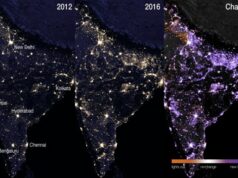Monday’s debate in the Lok Sabha on Operation Sindoor may have been an uncomfortable walk down memory lane for the Opposition, especially for the Congress Party members.
External Affairs Minister Jaishankar referred to questions from the Opposition as to why Op. Sindoor was stopped, and recalled the then Congress government’s inaction in the wake of the 26/11 attack by Pakistani terrorists on Mumbai.
He quoted from then National Security Adviser Shivshankar Menon’s book Choices, where he had written: “On sober reflection and in hindsight, I believe that decision not to retaliate militarily but to concentrate on diplomatic, covert and other means was the right one for that time and place.”
In Jaishankar’s view, the same government then went on to compound that “inaction” by agreeing with the then Pakistani prime minister at Sharm el-Sheikh in Egypt that “terrorism is a main threat to both countries,” and then adding that terrorism should not be linked to the composite dialogue and then accepting a reference to Balochistan.
“Here is a country reeling after 26/11 and you are equating Balochistan and what happened in Mumbai and you are saying that both the perpetrator and the victim have a problem and now you are asking me, why didn’t you go further,” Jaishankar said.
He faulted the 2006 UPA government-Pakistan statement made in Havana, three months after the Mumbai train bombings in which more than 200 people were killed, where both condemned terrorism and that “it is a scourge that we need to effectively deal with together.”
“The people who did nothing are asking the government that did so much, why didn’t you do more. I think it’s extraordinary.”
The Leader of the Opposition Rahul Gandhi, Jaishankar said, has been warning about a two-front scenario, meaning China and Pakistan together against India. But this collaboration has been going on for 60 years, he said, and ticked off dates:
In 1963 the Shaksgam Valley was ceded to China by Pakistan, in 1966 they agreed to build the Karakoram Highway, Chinese military supplies to Pak began in 1966, nuclear collaboration in 1976.
Add to that, 2005 Pak-China Treaty of Friendship, 2006 Pak-China FTA, 2013 Gwadar Port handed over to China and in May 2013, the Pak-China Economic Corridor agreement was sealed.
He agreed that Pakistan got a loan of $7 billion this year but pointed to the $15 billion it got in 2008 ($9.70 billion) and in 2013 ($5.9 billion), both UPA years.
Pakistan has been on the FATF grey list for the longest period under the Modi government, he said, 1576 days, and that country remains under the Enhanced Follow-up Category because of only partial compliance.
He faulted the Congress for declaring China a strategic partner of India in 2005, and the concept of “Chindia”, that India and China have common interests, is something that was claimed by the spokesman of that party, and underscored that the Leader of the Opposition was briefed by the Chinese ambassador during the Doklam crisis.
He recalled the Congress move for a regional trading arrangement with China, that fortunately did not fructify, and pointed out that Chinese 3G and 4G was allowed into India by the Congress.
Thirty eight years in journalism, widely travelled, history buff with a preference for Old Monk Rum. Current interest/focus spans China, Technology and Trade. Recent reads: Steven Colls Directorate S and Alexander Frater's Chasing the Monsoon. Netflix/Prime video junkie. Loves animal videos on Facebook. Reluctant tweeter.




